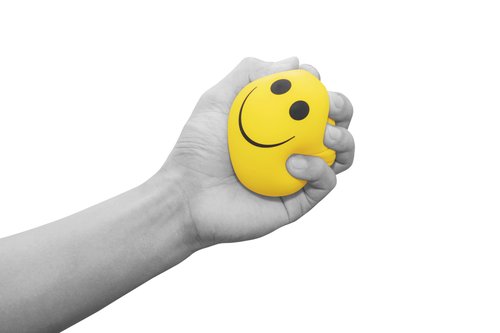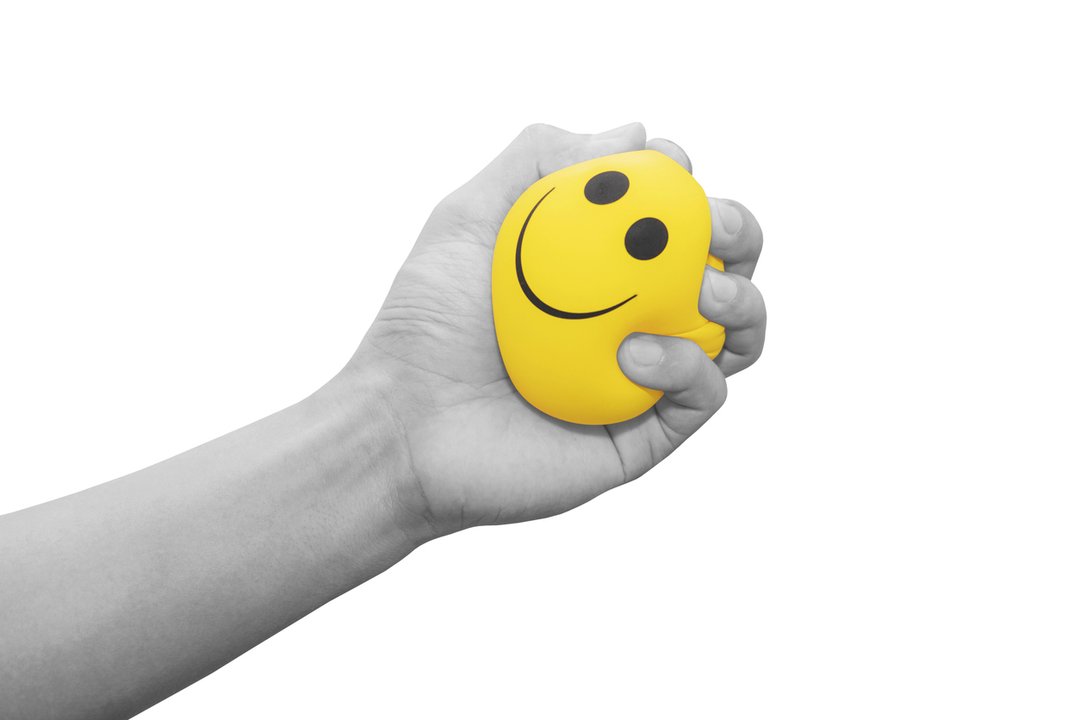
Summary. Studies suggest that increased exposure to news, whether through traditional media or social media platforms, can negatively impact mental health. In other words, more news correlates with higher anxiety. But the answer is not to check out altogether. In this article, the author shares advice from three experts on how to be more intentional about where, when, and how you catch up on the news so that you don’t become a victim of round-the-clock triggering headlines.

US President Donald Trump. Likes a tariff, or so I’ve heard.Photographer: Yuri Gripas/Abaca
Staying on top of the news isn’t just a professional necessity; it’s also your social responsibility. But the relentless flood of urgent alerts, reactions and global reports can often turn your well-intentioned scan of the headlines into an emotional minefield.
“The purpose of news from a civics perspective is to inform you about things going on in the world and in your community so that you can make better decisions for your life, family and business,” says Ben Leiner, lecturer on media technology and democracy at the University of Virginia’s Darden School of Business. Yet many news organizations focus on generating emotional reactions for the sake of engagement and clicks, which can lead to more sensationalized stories, says Leiner. While there’s nothing inherently wrong with news as entertainment, it raises an important question: How much do you really need to consume if it’s also upsetting?
The answer is not to check out, says Bryan McLaughlin, an associate professor at Texas Tech who researches the implications of problematic news consumption. Instead, you need to check in strategically, he says. Your goal is to be intentional about where, when and how you catch up on the news so that you don’t become a victim of round-the-clock triggering headlines. “This is not something that needs to intrude on you all day long,” adds Laura Owen, editor of Nieman Journalism Lab.
Here’s how our experts recommend you achieve this balance.
GET PERSPECTIVE
Studies suggest that increased exposure to news can negatively impact mental health. In other words, more news correlates with higher anxiety. If this resonates and you tend to get stressed about news headlines and events that don’t directly affect you, take heed: “It’s not that these things don’t matter, but you need to take breaks. You shouldn’t stop caring; but you also need perspective and balance.”
After all, it’s not just about the information; it’s about what it does to you, says Leiner. He references Viktor Frankl, the psychiatrist and Holocaust survivor paraphrasing his idea that “between how you feel and how you react lies your freedom.” But, “after that feeling, what are you going to do about it?”
BE JUDICIOUS ABOUT WHAT YOU CONSUME…
It goes without saying that you should only consume news from organizations with ethical journalistic standards, otherwise you risk being misled or manipulated. Be more intentional about what you’re reading, watching and listening to, says Leiner. Think about the issues you care about and the topics that matter most to your life and work. Then “identify journalists and commentators whose voices you trust, and establish relationships with them.”
The same goes for publications and programs. If you care about legislation or matters in your community, subscribe to your local paper; if you need to stay updated on certain trends for your job, seek out relevant newsletters, podcasts, and Substacks. Be selective about how deep you go on a given topic, too.
Another pro tip: Scale way back on social media.
…AND WHEN YOU CONSUME IT
Taking control of your media diet also means being deliberate about when you engage with news, rather than constantly snacking on headlines throughout the day. Think of those times when you’re standing in line at the grocery store and you pull out your phone to look at social media, or you’re at work and you open a new tab to browse headlines. “You might not be seeking out the news, maybe you’re just bored,” says Owen. In those moments, she recommends asking yourself: “What am I trying to do right now? If it’s read the news, do that. But if you’re looking for a diversion or stimulation, maybe there’s something better you can do.” “Try to understand your compulsive habits and raise awareness of what’s driving them,” adds McLaughlin. Often, looking at news is “not a conscious decision,” but rather an ingrained pattern. He advises setting boundaries, such as not checking the news until after breakfast or steering clear of it after dinner.
DEVELOP HEALTHIER HABITS
“When you overestimate the extent to which you need to be informed, you might start to lose the ability to disconnect from the news,” says McLaughlin. “Not just by stepping away from your phone, but by being constantly swept up in negativity and the feeling of threat and anxiety.” That’s why even if you are able to set better boundaries or even undertake an occasional news fast, unless you get a handle on your news consumption, you will likely “fall back into the same patterns,” he says. “For a short period of time you can resist, but your ability to self-monitor erodes.” He recommends trying to come to terms with the things that are causing you distress by letting go of the desire to have things turn out the way you want them to. Developing healthier habits is key. He suggests meditation, journaling, or practicing jujitsu — activities that can improve focus, ease tension, and build resilience. Owen advises finding ways to fill in the gaps when you reach for your phone to check news. You might, for instance, listen to a book or meditate. “It’s important to give yourself permission to do that,” she says.
TRANSFORM WORRY INTO ACTION
Many people find comfort in news brands and certain cable shows that provide “a sense of tribal comfort,” says Leiner. They tune in to feel “at one with their community.” But when this behavior is taken to extremes, it can become toxic as news organizations may prioritize outrage to boost audience engagement. What’s more, he says, even though it may feel satisfying to watch the news and worry about political issues, this can create the illusion of doing something. Instead, Owen recommends focusing on tangible actions that can make a difference, such as advocating for specific legislation or participating in local initiatives. “Do something meaningful and work on producing the change you want to see on a community level,” she says. “It’s not that it insulates you from bad news or keeps you from freaking out from time to time, but it stops you from feeling powerless.”
CONSUME YOUR NEWS THE OLD-FASHIONED WAY
Research shows that digital news consumption, particularly through social media, is associated with increased worry and anxiety, not to mention the potential for “doomscrolling.” As an antidote, Leiner suggests going old school: read the news in print, rather than on your phone or computer. While online, you’re constantly hopping from link to link and being pushed content, but print newspapers and magazines “are less curated for your attention,” allowing “more agency over what you read,” he says. This approach can create a more focused mental state and reduce the negative psychological impacts of online news exposure. Owen says she recently rediscovered the joy and serendipity of reading newspapers. “There’s so much more balance to what I’m reading and there have been some nice surprises,” she says.
Comments are closed.
